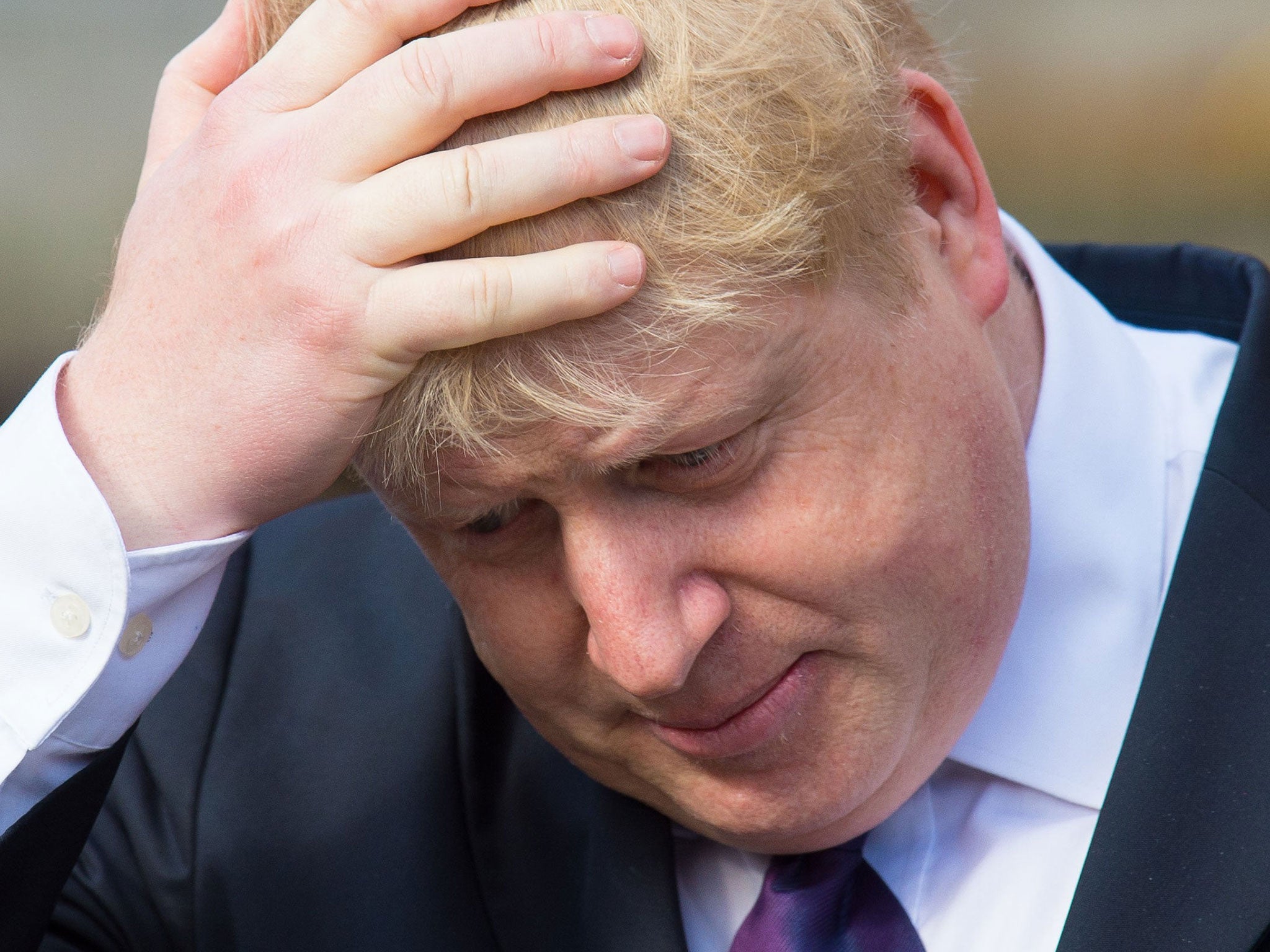The Independent's journalism is supported by our readers. When you purchase through links on our site, we may earn commission.
Why Boris Johnson might have helped keep Britain in Europe
The London Mayor's move shocked the currency markets - and revealed gloomy evaluations of the economic impact of Brexit

Last week sterling was well and truly hammered by Boris Johnson's declaration that he will be campaigning for Britain to leave the European Union in the forthcoming referendum. And the pound is still trading below $1.40, the lowest levels since the 2008-09 financial crisis.
But the intervention is a gift to exchange rate economists, because it provides a neat, natural experiment. Normally there is so much going on in financial markets, that it is impossible to know what is affecting what.
Plus, the sharp fall in Sterling may also end up being a gift to the "Remain" campaign.
Why? Well, one way of reading the reaction is that markets think about Brexit pretty much in the same way as those campaigning for Remain i.e that it would be an economic negative for the UK.
Sterling fell for two reasons: first, because markets judged that it raised uncertainty about the UK’s future, and second, because most likely, uncertain or not, Brexit would lead to us all being a little poorer.
Let's dig into each of these two arguments in turn.
Why did uncertainty about the UK’s future rise? By revealing his hand, Boris raised the chance of Leave winning the referendum on 23 June. The terms under which the UK would stay in are much more certain than the terms under which the UK would live after Brexit. Judging by the history of global trade negotiations there would be several years of talks to pin down the nature of any trade deal with the EU, and longer, probably, to crystallize separate agreements with other major trading blocs.
Some possible outcomes for these negotiations are relatively benign. But many are damaging and onerous. Either way, uncertainty goes up. Other things equal, more uncertainty makes holding Sterling assets less attractive (just like holding a share where you are not sure what your dividend is going to be is less appealing), so the price has to fall to compensate.
On top of that, there’s the uncertainty posed by the Brexit events themselves: the referendum day and the "Article 50" meeting dates. These are all dates that could spark runs on Sterling for no good reason, in the same way it’s possible to get a run on a perfectly sound bank. And worrying about these dates now makes a Sterling investor nervous.
The second leg of the argument is that – uncertainty aside – markets judged that Brexit would make us all poorer. Your typical investor, so the story goes, guesses that the rest of us anticipate that Brexit makes us worse off and this reduces demand in the economy now, pushing down, for instance, on wages, house and other domestic prices.
This force lowers the "real exchange rate", the name economists give to the real cost of living in one country compared to another. Lower demand and prosperity causes this real, relative cost of living to fall for the same reason that haircuts cost less in a poor city like Calcutta than they do in London. Ultimately, this leads to Sterling itself falling.
Of course the many rebuttal units of the different Leave campaigns would argue, not without some justification, that just because markets see Brexit this way, does not mean that it really would be like that. It is often argued that asset markets are buffeted by irrational waves of exuberance and depression.
But this snap judgement after Boris’ move may well yet register with voters as an economic warning.
In a nutshell, the curious thing about Boris’ gambit is this: by raising the chance in the mind of the market that Leave could win, and revealing the market's gloomy economic prognosis for Brexit, the move may ultimately be something that helps secure the referendum for Remain.
The author is Professor of Economics at the University of Birmingham and spent two decades working at the Bank of England. He blogs at Long and Variable.
Join our commenting forum
Join thought-provoking conversations, follow other Independent readers and see their replies
Comments
Bookmark popover
Removed from bookmarks